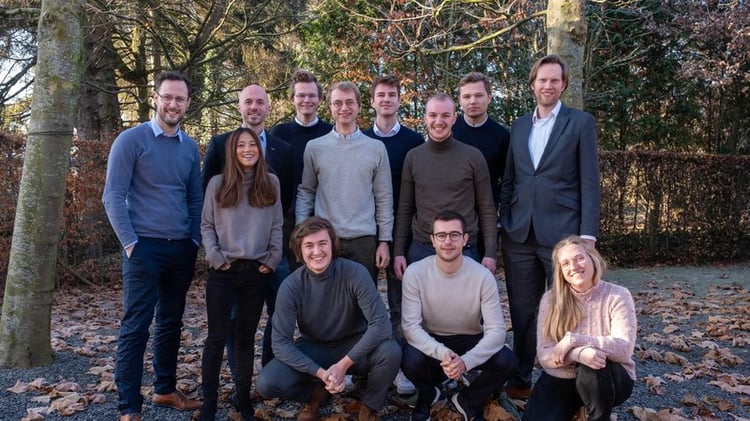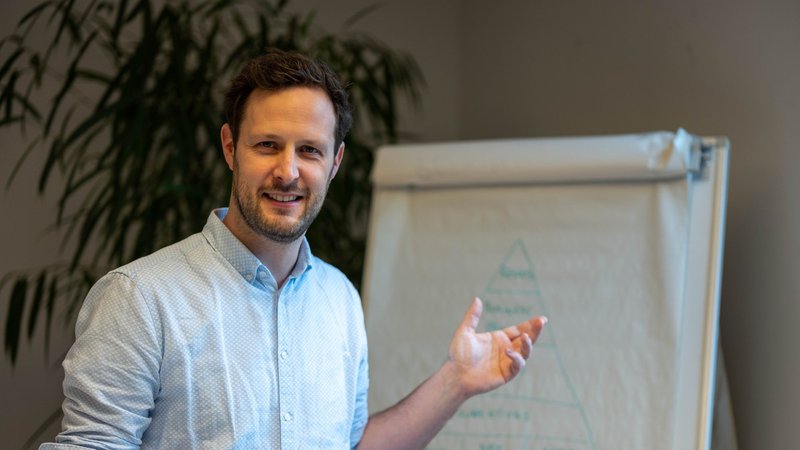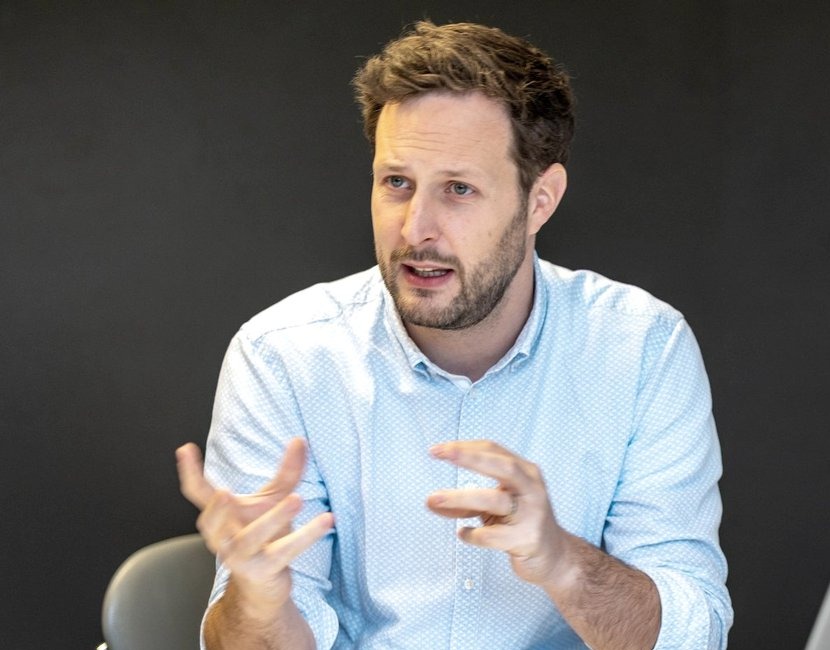Data dashboards filled with numbers, graphs and tables are a last step rather than a starting point in too many organisations. Data must lead to concrete action. This only works when organisations combine their data skills with deep industry knowledge. Möbius business consultants fill this gap, explains Peter Debaere, associate partner and data expert. "Culture and strategy are often more important challenges than technology. The entire organisation needs to be data-centric, and the right data insights need to be shared with the business."
In recent years, data has also become increasingly important at Möbius, explains Peter Debaere. "We stopped being traditional management consultants a long time ago. Today, about one-fifth of our 100-person team are data analysts. We combine deep industry knowledge with data expertise. In many organisations, data is not yet sufficiently shared with the business. We build bridges between these two islands."
Debaere cites the Flemish vaccination strategy against COVID-19 as an example. "One of the pillars of this strategy was the allocation of vaccines to vaccination sites, hospitals, nursing homes, ... Especially at the beginning of the vaccination campaign, when not many vaccines were available, it was very important that the available vaccines were distributed quickly and efficiently throughout Flanders. The intention, of course, was not for Antwerp to be vaccinated before Ghent, or for one group to be vaccinated before another."
"A vaccination campaign of this scale was completely new for Flanders. We developed a data model for this mass vaccination in a short time. This was only successful because, in addition to data skills, we also know the hospital landscape and how a supply chain is structured and functions. This knowledge of the sector is essential to collecting the right data and doing the right thing with it."
Sorting through the data chaos
Data availability is not the main issue facing organisations, Debaere notes. "They often have too much data. They measure 1001 things, which leads to a flood of data. We start by filtering that data. What data is useful and relevant? What data absolutely needs to be tracked, and what data adds little value and does not really say anything?"
"Organisations sometimes start collecting data indiscriminately just to see what you can do with it. You have to reverse that way of thinking. First determine the problem you want to solve, and then see what data you need to do that," Debaere says.

"Once organisations have selected the useful and relevant data, we can look at the data they are not yet capturing. What data is still missing to solve the problem? We usually start with small experiments. You don't have to make big investments right away; you can use simple no-code applications to very specifically check that you are capturing the right data. First determine the problem you want to solve and then see what data you need to do it," Debaere explains.
"First determine the problem you want to solve and then see what data you need to do it."
"The next step is to link the insights you get from the data to specific actions. Contact centres typically count the number of inbound calls that go unanswered. You can plot this data in tables and graphs, but the first step is to follow up on the ten inbound calls that were not answered the next day. That's why it's so important that information about the data reaches the right people who can immediately connect actions to it. That's often where the difficulty still lies."
Supply chain shocks
"The supply chain is a good example of this gap," Debaere says. "The global supply chain is very vulnerable to unexpected shocks. Think of the pandemic, the container ship that blocked the Suez Canal, or the war in Ukraine. When such a shock occurs, it is very important that the supply chain is sufficiently resilient. So what are companies doing? They look for all the data they can get to shed light on the entire chain. But if you do not focus and prioritise that mass of data, you do not get to see the right data at the right time."

"We start from a different angle. What are the extreme but realistic scenarios? And where is the supply chain most vulnerable if such a scenario occurs? It's about tracking those critical points. For example, this involves products that are a large part of your turnover, that contain parts that are imported across different continents, that have a delivery time of three months, ... You want to monitor these products very closely. To prioritise them, you need to know a company, a market, and an entire sector intimately. You can not just do that through the lens of the data scientist."
Measuring employee engagement
According to Debaere, the biggest challenge is not technology, but rather culture and strategy. "Collecting the right data and gaining the right insights from it is the first step. An organisation also needs to be able to work with a data-driven approach. Some organisations are already more advanced in this area than others. We see that data literacy cuts across sectors and industries. There are pioneers everywhere."
"Recently, many organisations have been asking us to look at employee engagement. Not only is this key to employee retention, happy and engaged employees also ensure high customer engagement. Today we see many initiatives around the 'new way of working', value work and talent management."
"But how do we know what impact these initiatives are having? Are they producing the desired results? How well are these initiatives aligned? Are they effective in keeping employee churn low and employer attractiveness high? Which target groups are more receptive to certain measures than others? Too few organisations have a strategy and measurement system in place to close this loop. By bringing together existing data from HR from different clusters, we can stimulate employee engagement much more effectively."
Economies of scale for better service delivery
Does it matter how much space data analysts have in an organisation? "For small organisations that are not very data-savvy and do not have a lot of scale yet, it's best to start with a centralised data team so you don't make mistakes and use the people available as efficiently as possible," says Debaere.
"If that scale is there, it can add value to have data scientists in decentralised teams. This way they are closer to the business, can gather relevant data faster and deliver relevant information to the business. This thinking then leads to concrete actions more quickly. But do not turn your organisation upside down overnight. Start with pilot projects to find out which configuration works best."

"We are also moving more and more towards collaboration that goes beyond companies and organisations. We see this in the public sector, for example. Many cities and municipalities collect the same data about their residents, associations, businesses ... Only they all store this data in different ways. If they do this in a uniform way and make clear agreements about privacy and governance, they can learn a lot from each other's data.
"By combining their own data with that of their partners, suppliers, customers or even competitors, they can only become smarter and more efficient."
"Through these economies of scale and unity, they can strengthen services to citizens. Such a model, where we approach data from an ecosystem perspective. Not only for public services, but also for businesses or healthcare institutions. If they can combine their own data with that of their partners, suppliers, customers or even competitors, they can only become smarter and more efficient," concludes Peter Debaere.
This piece was written by Jeroen Verelst and is a collaboration between Bloovi Studio & Möbius. The original article (Dutch) can be found here.



